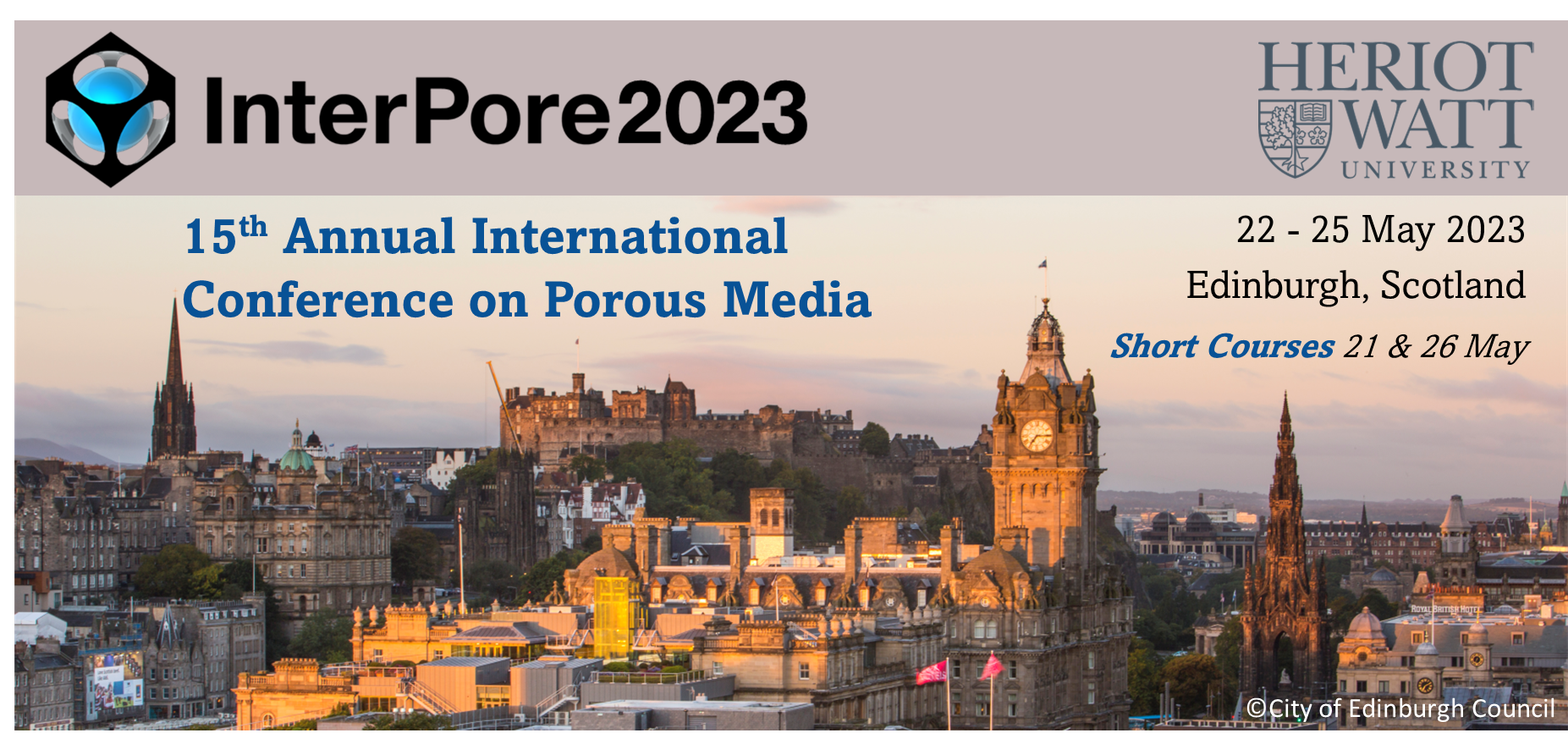Speaker
Description
Understanding the mechanical behavior and fluid flow properties of porous media composed of packed particulate has numerous applications within the physical sciences and engineering, being pertinent to the study of naturally occurring geo-materials, such as sedimentary rocks, and engineered media, such as fuel cells and catalysts. Both manmade and geologic granular porous media often exhibit pronounced spatial variability in their component particle sizes, which in turn, imparts internal heterogeneities in porosity, permeability, capillarity and mechanical strength within the particle column. Numerical methods for the simulation of pore-scale fluid flow or granular mechanics (e.g., Lattice-Boltzmann, finite volume and discrete element methods:) have enjoyed widespread application over the past decade, owing to the proliferation of both commercial software and open-source libraries through which such models can be readily deployed. Coupled with advances in volume imaging of real porous media (i.e., x-ray microcomputed tomography), workers are now able to probe such processes numerically within highly heterogeneous pore networks, providing a wealth of insights into the key physical properties of a wide range of porous materials [e.g., 1-3]. Despite these developments, objective methods for the generation of synthetic porous media characterized by grain-scale heterogeneities in particle size, mirroring those observed in both naturally occurring and manmade porous materials (i.e., layering, grading, lenses, nested pore structures / intragranular and matrix porosity) remain limited. The availability of such a framework is conceptually attractive, as it provides the means to introduce conditional heterogeneity into computational fluid dynamics and discrete particle scale mechanical simulations, providing experimental control over spatial variability in particle size for such studies.
In this work, we present a method capable of simulating granular media which can represent pore-scale heterogeneities commonly observed within a wide variety of natural (i.e., geologic) and manmade porous materials alluded to above. Here, we utilize a modified implementation of the sequential deposition algorithm from the classic material physics literature towards the generation of highly heterogeneous 2D and 3D particle beds (sphere packs), amenable to computational fluid dynamics (CFD) and the initialization of discrete element model (DEM) based mechanical simulations. The presented approach utilizes closed form analytical solutions for the detection of linear and rotational collision between the mobile and static particle pack, meaning that it is computationally efficient and amenable towards the generation of granular porous media containing large numbers of elements. We demonstrate the power of the approach using finite volume CFD simulations of immiscible fluid flow using a range of heterogeneous pore systems generated using our novel framework.
References
- Ranut, P., Nobile, E. and Mancini, L., 2015. High resolution X-ray microtomography-based CFD simulation for the characterization of flow permeability and effective thermal conductivity of aluminum metal foams. Experimental Thermal and Fluid Science, 67, pp.30-36.
- Degruyter, W., Burgisser, A., Bachmann, O. and Malaspinas, O., 2010. Synchrotron X-ray microtomography and lattice Boltzmann simulations of gas flow through volcanic pumices. Geosphere, 6(5), pp.470-481.
- Fu, X., Dutt, M., Bentham, A.C., Hancock, B.C., Cameron, R.E. and Elliott, J.A., 2006. Investigation of particle packing in model pharmaceutical powders using X-ray microtomography and discrete element method. Powder Technology, 167(3), pp.134-140.
| Participation | In-Person |
|---|---|
| Country | Qatar |
| MDPI Energies Student Poster Award | No, do not submit my presenation for the student posters award. |
| Acceptance of the Terms & Conditions | Click here to agree |







